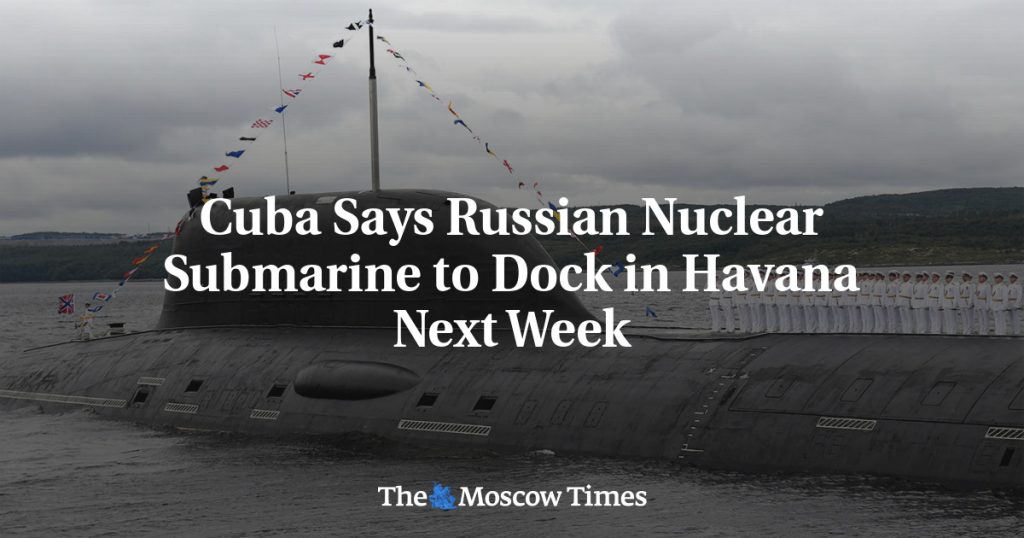A Russian nuclear-powered submarine, along with three other Russian naval vessels, is scheduled to make a stop in Havana, Cuba from June 12-17. The Cuban Ministry of the Revolutionary Armed Forces confirmed that the submarine Kazan, the missile frigate Admiral Gorshkov, an oil tanker, and a salvage tug will be docking in the Cuban capital. The ministry also stated that none of the vessels are carrying nuclear weapons, ensuring that their presence in Cuba does not pose a threat to the region. This unexpected deployment of Russian military ships so close to the United States comes at a time of heightened tensions due to the ongoing war in Ukraine.
The close proximity of Russian military vessels to the United States is particularly significant given the historical context of Cuba’s relationship with Russia. During the Cold War, Cuba served as an important client state for the Soviet Union and was the site of a major showdown between the United States and the USSR during the Cuban Missile Crisis of 1962. The presence of Soviet nuclear missile sites in Cuba at that time brought the world to the brink of war. In recent years, relations between Russia and Cuba have been strengthening, with Cuban President Miguel Diaz-Canel meeting with Russian President Vladimir Putin last month for the annual Victory Day parade in Moscow. This meeting has likely contributed to the increased cooperation between the two nations, leading to the upcoming visit of Russian military vessels to Havana.
The visit of the Russian nuclear submarine and other naval vessels to Cuba comes as a surprise and raises concerns about potential implications for regional security. While the Cuban Ministry of the Revolutionary Armed Forces has assured that the vessels are not carrying nuclear weapons, the presence of such advanced military technology so close to the United States is likely to be closely monitored by U.S. authorities. The recent tensions between Russia and the United States over the situation in Ukraine add another layer of complexity to the situation, further emphasizing the need for careful observation and diplomatic engagement to prevent any escalation of conflict.
The strong ties between Russia and Cuba have deep historical roots, dating back to the Cold War era when the two nations were key allies in the global power struggle between the East and West. The Cuban Missile Crisis, in particular, stands out as a critical moment in the relationship between the two countries, with the world coming perilously close to nuclear war. In recent years, Russia has been seeking to bolster its presence in regions where it had previously held influence, such as Latin America, while also asserting itself as a global power in opposition to the United States. The upcoming visit of Russian military vessels to Cuba can be seen as a continuation of these efforts.
As the visit of the Russian nuclear submarine and other naval vessels to Havana approaches, it is important for all parties involved to exercise caution and engage in open communication to prevent any misunderstandings or miscalculations. The presence of advanced military technology in such close proximity to the United States raises concerns about potential security threats and the need for vigilant monitoring of the situation. The recent tensions between Russia and the United States, combined with the historical significance of Cuba in the global power struggle between the East and West, make this visit an important event to watch closely and assess its implications for regional and international relations.


